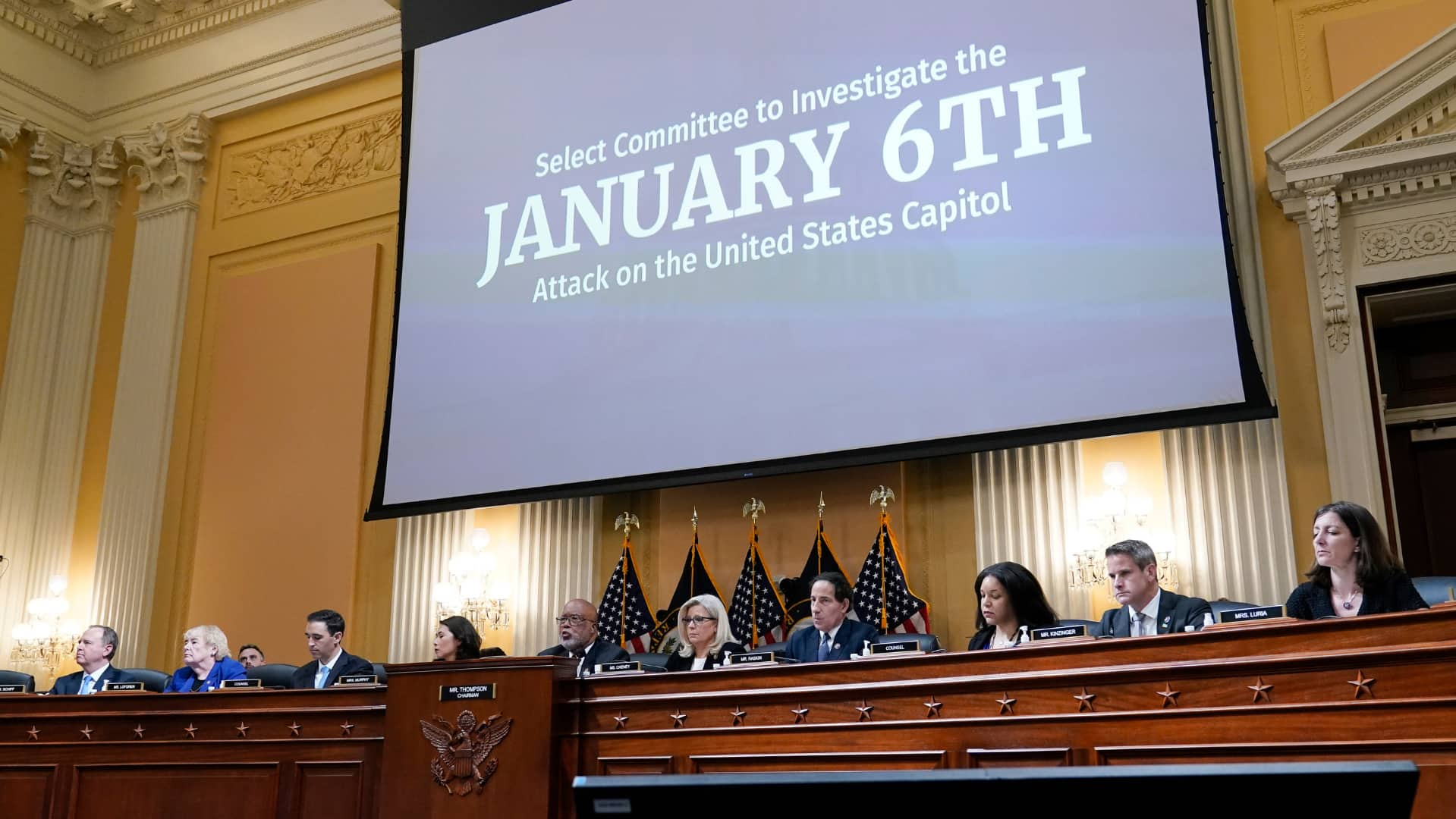[ad_1]
With live testimony from two former White House aides, and excerpts from the trove of more than 1,000 interviews, the nearly two-hour session will focus on that three-hour time frame, after earlier hearings heard testimony concerning the weeks Trump spent pursuing claims of electoral fraud after the Nov. 3, 2020, vote he lost to Joe Biden
“He did not call the military. His Secretary of Defence received no order. He did not call his Attorney General. He did not talk to the Department of Homeland Security,” panel vice-chair Liz Cheney, Republican from Wyoming, said at an earlier hearing.
In delving into the timeline, the panel aims to show what happened between the time Trump left the stage at his “Stop the Steal” rally shortly after 1:10 p.m. on Jan. 6, 2021, after telling supporters to march to the Capitol, and some three hours later, when he issued a video address from the Rose Garden in which he told the rioters to “go home” but also praised them as “very special.”
“The president didn’t do very much but gleefully watch television during this time frame,” panel member Adam Kinzinger, Republican from Illinois, has said.
WATCH | Republican strategist on the compelling testimony from the most recent hearing:
Allegations of witness tampering by former U.S. president Donald Trump have been raised by the Jan. 6 committee. Republican strategist Rick Wilson shares his views on this new allegation and what has been learned from the hearings so far.
The committee also expects to produce additional evidence about Trump’s confrontation with Secret Service agents who refused to drive him to the Capitol.
Matt Pottinger, who was deputy national security adviser, and Sarah Matthews, then-press aide, are scheduled to appear in person at the Thursday night hearing. Both submitted their resignations on Jan. 6, 2021, after what they saw that day.
This hearing comes a day after a bipartisan group of senators agreed on proposed changes to the Electoral Count Act, the post-Civil War-era law for certifying presidential elections that came under intense scrutiny after the attack on the Capitol and Trump’s effort to overturn the election.
‘No person is above the law’: U.S. attorney general
While the Jan. 6 committee cannot indict individuals based on what it’s uncovered, there were more signs this week that criminal matters are being considered outside its purview.
Attorney General Merrick Garland on Wednesday said the department was committed to holding to account “every person who is criminally responsible for trying to overturn the presidential election,” characterizing the events leading up to and on Jan. 6 as the most important investigation the department has ever undertaken.

“No person is above the law in this country, I can’t say it any more clearly than that,” Garland said, after a reporter asked if his statement applied even to a former president.
No former president has ever been federally prosecuted by the Justice Department. President Gerald Ford in 1974 pardoned his predecessor Richard Nixon before that possibility could be seriously considered, just a month after Nixon resigned over the Watergate crimes.
Meanwhile, the Georgia prosecutor who’s investigating through a special grand jury whether Trump and others illegally interfered in the 2020 general election in that state has informed 16 Republicans who served as fake electors that they could face criminal charges.
A lawyer for Fulton County District Attorney Fani Willis’s office said in a court filing Tuesday that each of the 16 people are targets of the investigation after signing a certificate declaring falsely that Trump had won the 2020 presidential election and declaring themselves the state’s “duly elected and qualified” electors. Biden had won the battleground state of Georgia.
With respect to the violence and trespassing seen at the Capitol on Jan. 6, 2021, more than 840 people have been charged with federal crimes. More than 330 of them have pleaded guilty, mostly to misdemeanours. Of the more than 200 defendants to be sentenced, approximately 100 have received prison terms.
No credible claims of widespread 2020 election fraud were brought forth in dozens of cases that went before the courts and were subsequently rejected. The Trump administration’s own Cybersecurity and Infrastructure Security Agency characterized the election in a statement as “the most secure in American history,” and former attorney general William Barr, chosen by Trump, has panned many of the assertions of fraud by the former president and his most loyal advocates.
[ad_2]

